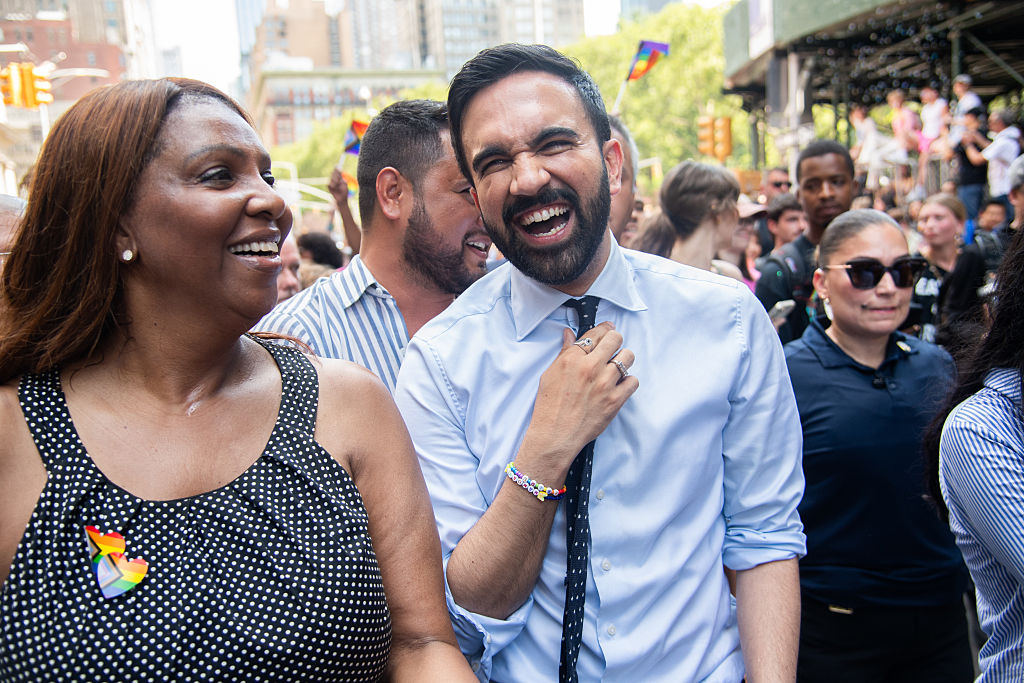Epidemic Of Dengue Fever Threatens Caribbean
SAN JUAN, Puerto Rico — Mosquito-borne dengue fever is reaching epidemic stages across the Caribbean, with dozens of deaths reported and health authorities concerned it could get much worse as the rainy season advances.
The increase in cases is being blamed on warm weather and an unusually early rainy season, which has produced an explosion of mosquitoes. Health officials say the flood of cases is straining the region’s hospitals.
Check out this week’s hottest news photos:
In the Dominican Republic, where at least 27 deaths have been reported, hundreds of health workers and soldiers went door-to-door Saturday to warn about the virus and destroy mosquito breeding areas.
Hospitals in Trinidad are running out of beds, and Puerto Rico is facing what officials say could be its worst dengue outbreak in more than a decade.
“We are having a really large epidemic,” said Kay Tomashek, epidemiology section chief of the Centers for Disease Control and Prevention’s dengue branch in Puerto Rico.
At least five people have died in the U.S. Caribbean territory, and another 6,300 suspected cases have been reported as of mid-July, she told The Associated Press.
Only 100 more cases were reported during the same period in 1998, which marked the island’s worst dengue outbreak. By the end of that year, the virus had sickened 17,000 and killed 19 people.
In Trinidad, officials added 15 beds to the San Fernando General Hospital on Friday. They also opened a dengue clinic to follow up on patients who are being discharged quickly to free up more beds. At least one death has been reported.
Dr. Anton Cumberbatch, chief medical officer of the island’s health ministry, said he is worried that the number of deaths and cases of the more severe hemorrhagic dengue will increase this year.
The more people are repeatedly infected, the greater the chance they will develop the hemorrhagic form, which can be fatal, he told a recent news conference.
And since Trinidad had a severe dengue bout just two years ago, that means it is likely people who had the virus will get it again, he added.
“The risk and the severity of the dengue situation is apparently rearing its head at a really rapid rate,” Cumberbatch said.
The Dominican Republic is grappling with the same problem.
Nurses at a children’s hospital in Santiago, which has one of the highest dengue incidences this year, demanded more resources and personnel. Four children died this week in Santiago, located northwest of the capital of Santo Domingo.
Health Minister Bautista Rojas says more than 5,000 people have been diagnosed with dengue, but Senen Caba, president of the Dominican Medical Association, disputed those numbers and said doctors have reported more than 7,000 cases.
“Hospitals are flooded with fever cases,” Caba said. “Emergency rooms are overflowing.”
Caba said the last time the country experienced a similar dengue epidemic was a decade ago.
“There has been a kind of explosion when it comes to mosquitoes,” he said of this year.
French Guiana, Guadeloupe and St. Martin also have registered a high number of dengue cases, and more than 16,700 total cases had been reported across the Caribbean through early June, according to the latest statistics available from the Pan American Health Organization.
There are four types of dengue, and all cause fever, headaches and extreme joint and muscle pain. Most victims recover within a week, and while they become immune to the specific type of dengue they caught, they are still vulnerable to other types, Tomashek said.
Health officials fear the virus, which had once disappeared from the United States, also could gain a foothold there.
While test results for a suspected dengue case in the Miami area came back negative this week, a recent study found five percent of Key West residents show evidence they have been exposed to the virus.
RELATED STORIES
U.S. To Give Caribbean Nations $100 Million To Fight AIDS
Caribbean-Americans Seek Their Own Ethnicity Box On Census Form















